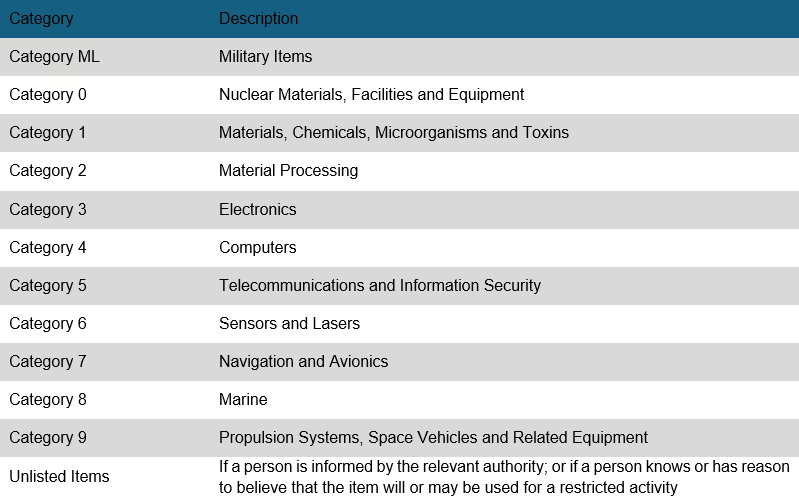
Introduction
Malaysia’s Agreement on Reciprocal Trade (ART) with the United States has sparked renewed debate about sovereignty, economic security and long-term competitiveness. Much of the public attention has focused on tariff reductions and market access. However, the most significant implications of the ART lie in its treatment of strategic items and technology governance, particularly for Malaysia’s semiconductor ecosystem.
As strategic technologies such as advanced chips, AI accelerators and high-end computing systems increasingly fall under national security scrutiny, trade agreements today are shaped as much by security concerns as by classical market considerations. Malaysia’s policy challenge is therefore not only to maintain access to major markets but also to strengthen domestic governance frameworks that enable trust in sensitive, high-value industries.
Strategic Trade as Economic Strategy
The semiconductor industry sits at the centre of global technological competition. High-performance chips, lithography tools, fabrication equipment and advanced computing infrastructure are now considered strategic items that shape national economic and security outcomes. Malaysia’s regulatory foundation for such technologies is the Strategic Trade Act 2010 (STA 2010), which governs export, transshipment, transit and brokering of strategic items and intangible technology transfers.
In July 2025, Malaysia took an important step by imposing Strategic Trade permit requirements on high-performance AI chips of United States origin, applying Section 12 of the STA 2010 to prevent diversion or illicit procurement of unlisted but sensitive technologies1. The Strategic Trade Controller’s accompanying Directive No. 1/2025 further clarified Malaysia’s commitment to regulating sensitive computing items according to performance thresholds captured in Category 3, Category 4 and Category 5 of the Strategic Items List2 as tabulated in Table 1.
Table 1: Classification of STA 2010 Items

These measures positioned Malaysia ahead of many regional peers, offering reassurance to multinational companies operating in high-value semiconductor segments. The ART reinforces this trajectory by embedding cooperation on export controls, investment security and technology protection within an international trade framework3. Rather than replacing STA 2010, the ART complements it by elevating the importance of regulatory credibility in supply-chain partnerships.
Sovereignty, Due Process and Policy Autonomy
Concerns that the ART might compromise Malaysia’s sovereignty have featured prominently in public discourse. The Ministry of Investment, Trade and Industry (MITI), in its 17 November 2025 statement, addressed these concerns directly by confirming that no amendments to domestic laws were required prior to the signing of the agreement and that all procedures were carried out with parliamentary briefings and inter-agency consultations7. MITI also emphasized that due process was fully observed, noting that at least ten engagement sessions with policymakers, parliamentary committees and party blocs were held between May and October 20257. This indicates that Article 5.2 is implemented strictly through Malaysia’s domestic laws rather than external imposition.
The ART was negotiated in response to unilateral tariff actions by the United States. Without the agreement, Malaysia risked facing tariffs of 24 percent or more across nearly 12 percent of export lines, including critical semiconductor-related items4. MITI’s scenario assessments highlighted that inaction could have exposed Malaysia to deeper tariff shocks that would disproportionately affect workers and firms across high-value manufacturing industries7. In this light, the ART functions as a stabilizer rather than a constraint. It provides tariff certainty during a volatile period of global trade governance while maintaining Malaysia’s legal autonomy.
Semiconductors and the Imperative of Trusted Governance
Malaysia’s semiconductor ecosystem is a global leader in assembly, testing and packaging and is steadily expanding into chip design, equipment manufacturing, semiconductor materials, and AI-driven data centre operations. In this context, trust has become a form of economic capital. Firms increasingly prioritize jurisdictions that can demonstrate strong compliance culture, transparent processes and minimal diversion risks.
Export controls are central to this trust. The United States, European Union, Japan and South Korea have all tightened regulations on high-performance computing items, lithography tools, inspection systems and semiconductor manufacturing equipment. Japan expanded its Listed Controlled Items in 2024 to include advanced semiconductor-related technologies and specialized imaging systems8. The European Union introduced new controls covering semiconductor manufacturing and testing equipment as part of updates to the Dual-Use List in 20259, supported by a broader economic-security agenda that explicitly identifies semiconductors as a strategic vulnerability10.
Empirical studies show that export-control actions can reshape supply-chain behavior. Research on the Japan-Korea semiconductor dispute demonstrates that firms respond to restrictions by altering sourcing decisions and relocating production11. Industry analysis also shows that tightened export controls are now a structural factor influencing investment decisions and innovation trajectories in advanced semiconductor manufacturing12.
In this environment, Malaysia’s July 2025 AI chip directive is both timely and economically strategic. By requiring permits for high-performance AI accelerators and advanced computing systems, Malaysia demonstrates that it can align with international norms while maintaining a predictable regulatory environment for investors1,2.
Modernizing STA 2010 for a Changing Technological Landscape
The ART provides an occasion for Malaysia to consider forward-looking reforms to strengthen its strategic trade ecosystem.
Enhance technical classification capabilities
As chips become more powerful and integrated, performance metrics such as total processing performance and performance density require specialized classification skills. Investment in talent, tools and inter-agency coordination is essential.
Strengthen governance of intangible technology transfers
Semiconductor design has shifted to cloud-based workflows, and advanced AI training occurs on distributed systems. Malaysia could update STA 2010 guidance to address intangible technology risks more explicitly.
Improve industry outreach and compliance culture
Compliance costs for SMEs can be significant. Streamlined processes and better awareness initiatives can help firms remain competitive while meeting regulatory expectations.
Build a reputation for transparent, trusted enforcement
Regulatory clarity and consistency are competitive advantages in high-tech sectors. As more countries integrate export controls into investment screening and supply-chain risk management, Malaysia can leverage its maturing framework to attract long-term strategic investments.
Conclusion
Strategic Trade for an Era of Technological Competition
The ART should be understood not only as a tariff arrangement but as part of a broader shift in global trade, where strategic technologies, national security and regulatory credibility increasingly shape economic opportunity. For Malaysia, the intersection of semiconductors, export controls and trade policy offers both challenges and strategic openings.
By reinforcing STA 2010, strengthening due process, modernizing governance for AI and advanced chips, and positioning itself as a trusted jurisdiction, Malaysia can enhance its role in the global semiconductor value chain. In a world where economic security and technological capability are tightly coupled, strategic trade governance is not just a compliance requirement. It is an essential pillar of national competitiveness.
For further enquiries, you may contact Dr. Amirah 'Aisha Badrul Hisham on LinkedIn or explore her research on Google Scholar






.avif)







